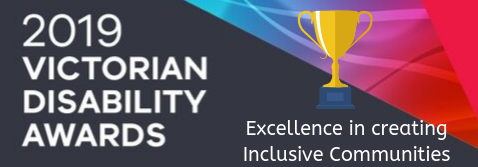One of the first steps is to ask people about their access requirements. Many disabilities are invisible. Find out from each consumer representative the accommodations and supports they require to ensure they are able to have equal input within the organisation.
Barriers to people with cognitive disabilities having a ‘voice at the table’ can include:
- Information – Information not available in accessible formats.
- Communications – Limited access to the internet and email, difficulty speaking on the phone, difficulty reading and writing. Find out from the consumer representative how they prefer to be contacted.
- Social – Organisational and/or staff attitudes and perceptions.
- Access – Inaccessible meeting practices, including inaccessible language, e.g. jargon and acronyms.
- Access – Support needs not addressed.
- Social – Being the only consumer representative on a panel can be intimidating. Lack of confidence or unfamiliarity with the social environment can create barriers. Even knowing what to wear. Wherever possible ensure there are at least two consumer representatives.
- Psychological – Consumer representatives might have a history or experience that has led to trauma, a distrust of professionals or scepticism about the consumer participation process. An awareness and understanding of this can help you consider how to facilitate discussion.
- Economic – There are often hidden costs associated with participation and these can create a barrier. For example, the cost of transport, food, technology, printing, phone credit or stationery. Also, some types of income can create difficulties for someone on a disability pension.
- Physical – Often people with cognitive disability also have physical disabilities.
- Environmental – Some people are sensitive to sound or light. Give thought to the meeting room and the seating arrangement.
Some tips to overcome common barriers:
- provide information in accessible formats;
- meet support and access needs including paid support and/or mentoring etc.;
- adapt meeting procedures;
- provide inclusive practice guidelines to the chairperson;
- provide pre and post meeting support;
- provide resources and training for representatives;
- ensure people are aware of and understand relevant organisational policies, e.g. grievance procedures, confidentiality, etc.;
- reimburse expenses and the provide sitting fees.
Next Page: Removing Barriers – Orientation Kit
Chapter 4. Identify and Remove Barriers
Tips for Easy English Tips for Creating Audio Visual Resources Tips for Inclusion Support Workers
Menu: Consumer Participation Kit



